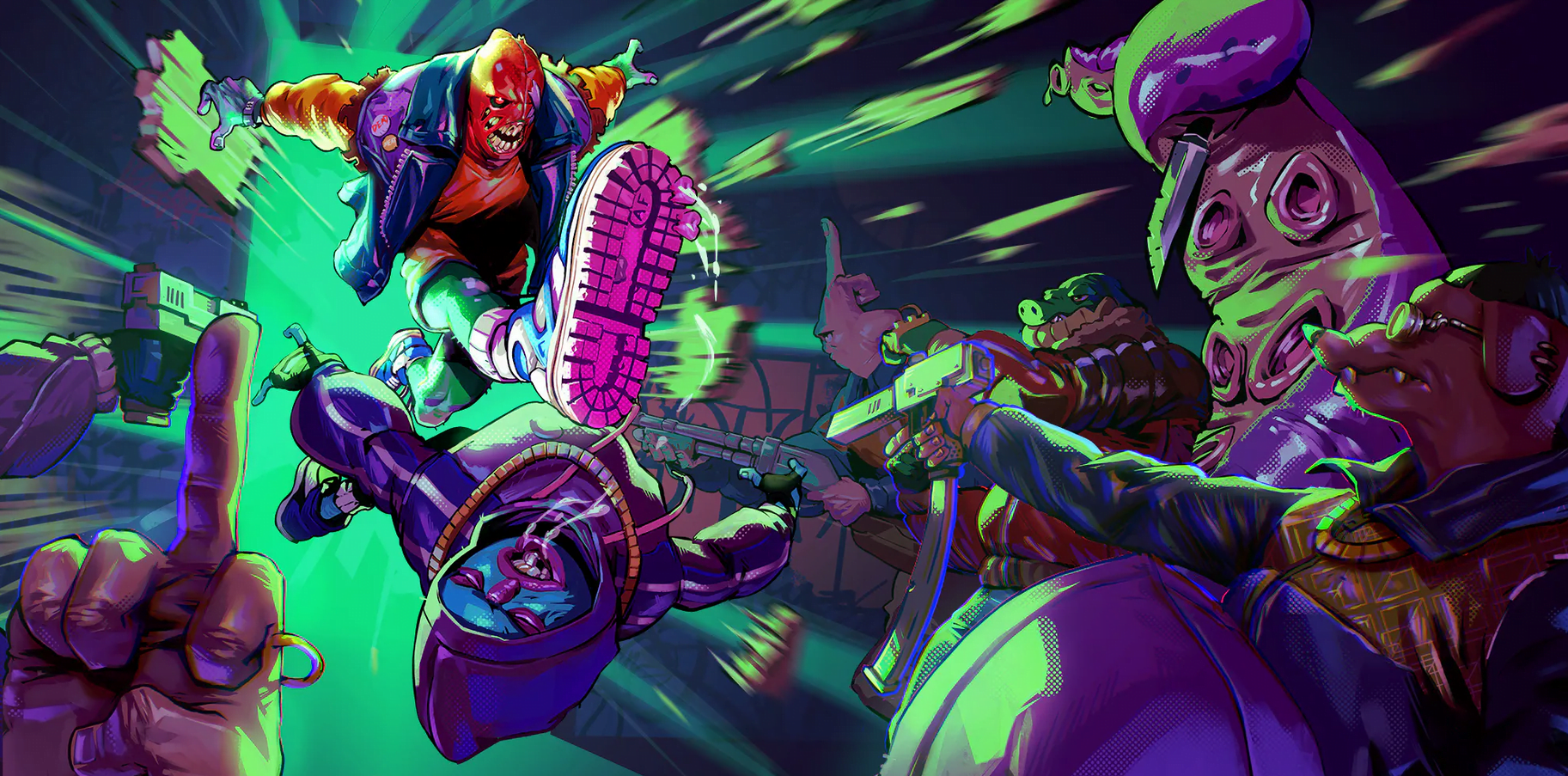In the current surge of nostalgia-filled games, it’s great when one of them so perfectly encapsulates the feel of 16-bit as well as Dex does. It feels especially like a Genesis/Mega Drive RPG platformer made in this day and age, from its graphics down to just how bogged down its pacing feels at times.
Dex begins in the far-flung future, in a metropolis that’s completely enslaved by technology, at the hands of mega corporations vying for control of the cybernetic enhancement market. You play as the homonymous protagonist, who wakes up just as her apartment is about to be raided, quickly discovers that she’s mysteriously acquired special hacking powers, thanks a sentient computer system that seems to communicate directly to her head.
There’s quite a bit to do in Dex, but little of it is different than picking up a quest, heading to a particular spot on the map, maybe awkwardly throw punches at some thugs and picking up an item or hacking into a computer. Most of the content in Dex is busy work around its fairly big map, which is made a little more manageable thanks to fast travel. Thankfully, the writing in the game tends to be pretty good all throughout, even during the side activities, so at least the back and forth is worth it if you’re at all interested in cyberpunk fiction.
As mentioned before, the combat in Dex is extremely predictable and not at all different from what you’d see in a platformer during the 1990s. Enemies tend to rush at you and either punch or block, which is coincidentally what you can do yourself. Sure, a few of the ability upgrades help vary your moves a little, but nothing that goes beyond trading blows face to face with the gang members and security guards you’ll run across. Once you get ahold of some weapons, you can also shoot people, but the aiming mechanic in the game is really slow, while the enemies’ doesn’t seem to be at all. Your best bet then is to try and take things slowly and eliminate one foe at a time via stealth moves, if possible.
Speaking of stealth, there’s also the possibility of hacking into security systems and avoiding some of the harder confrontations with guards, turrets and cameras, but you’re gonna have to deal with a very basic and ridiculously annoying shoot ’em up minigame in order to do so. Unlike hacking in a game like, say Deus Ex, done via something that somewhat resembles a computer, Dex likes to make things way more complicated (read: frustrating) by setting objectives as targets you have to hunt down as you pilot a dingy little ship around cyberspace, while avoiding the opposition. These sections are easily Dex‘s weakest element, and even if you spend some experience points in the hacking tree, the lack of difficulty doesn’t help the fact that you’re forced to repeatedly get into that minigame in the first place.
On the other hand, Dex has a lot going with its presentation. Its pixelated façade is top notch, going for a 16-bit look instead of the usual faux 8-bit look we’re so used to seeing from indie games nowadays. The urban environments are very lively and expectedly dirty, with a constant stream of people walking in the background and foreground, helping convey just how big the city is. Dex herself is well animated and really looks alive, even if the handful of enemy sprites don’t, as they drone around before engaging you. The game also surprisingly features full voice acting from practically all of the dialog, even if some of it tends to be (probably intentionally) bad.
There are also a few interesting options when it comes to completing quests. Depending on how you spend your upgrade points, there might be more dialog options during the game that in similar fashion to other games that feature dialog trees, you might be able to get different outcomes depending on the roll of the die. While some of these outcomes usually come down to more credits at the end of the deal, there are options to eventually influence the lives of the people you come across, who might just lend you a hand later on, or not. It’s cool to see such variety in a game with such a small team behind it, certainly an ambitious goal that is somewhat successfully met throughout Dex.
For as much as I could bag Dex for its pacing issues and monotonous combat, I can’t help but be impressed by just how much developer Dreadlocks has managed to put into it, particularly in how they build up the world in which the game takes place in. Sure, a lot of the game feels archaic in today’s standards, but the bits that it does right are enough to warrant anyone’s that’s remotely interested in the subject matter to at least check it out for themselves.







